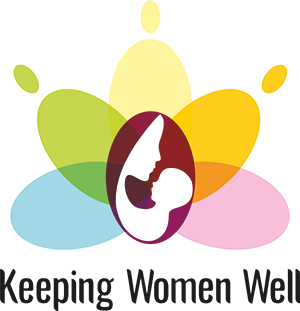
Endometriosis is a condition where tissue similar to the lining inside the uterus grows outside it. This can cause pain, irregular cycles, and fertility issues. It affects millions of women worldwide, making it a significant concern for women’s health.
There’s a lot of talk about how lifestyle changes might help with endometriosis. But can adjusting what you eat or how much you move really make a difference? Or is this just a popular myth?
In this blog, we’ll dig into some common assumptions about endometriosis and lifestyle. We’ll check the facts using research-backed evidence. Let’s find out if lifestyle changes are a valuable path to managing this condition or just wishful thinking.
Lifestyle Factors Affecting Endometriosis: Separating Facts from Fiction
Several lifestyle factors have been looked at to see how they might affect endometriosis. These include what you eat, how much you exercise, how you manage stress, and your overall mental health.
First, diet. Some studies suggest that certain foods might help or hurt those with endometriosis. Foods to avoid may include processed goods, excess caffeine, and too much red meat. On the flip side, a diet rich in fruits, vegetables, and whole grains may be beneficial.
Next up is physical activity. Exercise can help reduce pain by releasing endorphins, our body’s natural painkillers. But intense exercise might not be suitable for everyone. It’s more about finding what works for you without pushing too hard.
Stress management plays a significant role too. High levels of stress can worsen symptoms. Techniques like yoga and meditation might not only help in managing endometriosis pain naturally but also improve overall well-being.
Supplements and alternative treatments are on many people’s radars. Some believe things like omega-3s or herbal remedies can help, though evidence can be hit or miss.
In exploring these aspects, it’s essential to note what works for one person might not work for another. Personal experiences can vary widely in the journey to find relief.
Endometriosis-Friendly Lifestyle Changes: Practical Strategies
Making lifestyle changes can seem overwhelming. But small, manageable steps can create a path to feeling better. Here are some strategies to consider.
Diet Tips
– Endometriosis diet recipes focus on anti-inflammatory foods. – Include meals with lots of colorful vegetables, lean proteins, and healthy fats. – Keep portions of foods to avoid, like processed snacks and sugary drinks, in check.
Sample meal ideas: – Breakfast: Oatmeal with berries and a splash of almond milk. – Lunch: A salad with mixed greens, cherry tomatoes, avocado, and grilled chicken with olive oil dressing. – Dinner: Stir-fried vegetables with tofu and quinoa.
Exercise and Pain Management
- Gentle activities like walking, swimming, or light yoga can be helpful as exercise routines for endometriosis.
- Stress management for endometriosis sufferers is crucial; pick activities that calm the mind.
- Engage in deep breathing exercises or relaxation techniques to ease tension and discomfort.
Mental Health Focus
Coping with endometriosis can affect emotional well-being. It’s essential to: – Talk about your feelings with trusted friends or a therapist. – Practice mindfulness or gratitude exercises to stay positive.
Expert Insights
Healthcare professionals often recommend combining lifestyle changes with medical treatments for the best results. Consulting a nutritionist can offer personalized advice, especially when trying new dietary strategies. Medical experts can guide on the right balance of exercise and rest. Listening to your body is key.
Making these changes might not eliminate symptoms completely. However, they can provide a sense of control and can be part of a fuller management plan.
Insights and Future Directions in Endometriosis and Lifestyle Research
Lifestyle modifications offer hope for better quality of life for those with endometriosis. Many women have found relief by embracing these changes.
However, more studies are needed. Current research often doesn’t address how lifestyle directly impacts the condition. This leaves gaps in understanding the full picture. Comprehensive studies could determine the exact role lifestyle plays in symptoms.
As research continues to grow in this area, individuals can start making positive changes with the guidance of healthcare professionals. It’s about creating a tailored approach fitting individual needs.
Early evidence suggests that a holistic approach, combining diet changes, exercise, and stress management strategies may be effective. But always remember: it’s a personal journey. Listening to your body and collaborating with your healthcare team will provide the best path forward.
Stay hopeful and informed, and consider creating a support network. A community – whether online or in person – can offer valuable tips and emotional backing as you explore these lifestyle changes.
In conclusion, while lifestyle changes can be beneficial, they should always complement medical advice to ensure comprehensive care. As research progresses, more concrete answers might become clearer, offering further assistance to those navigating endometriosis.
